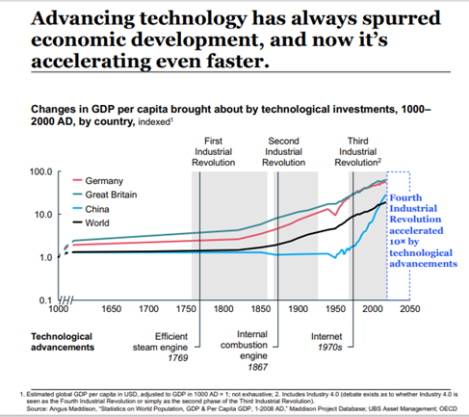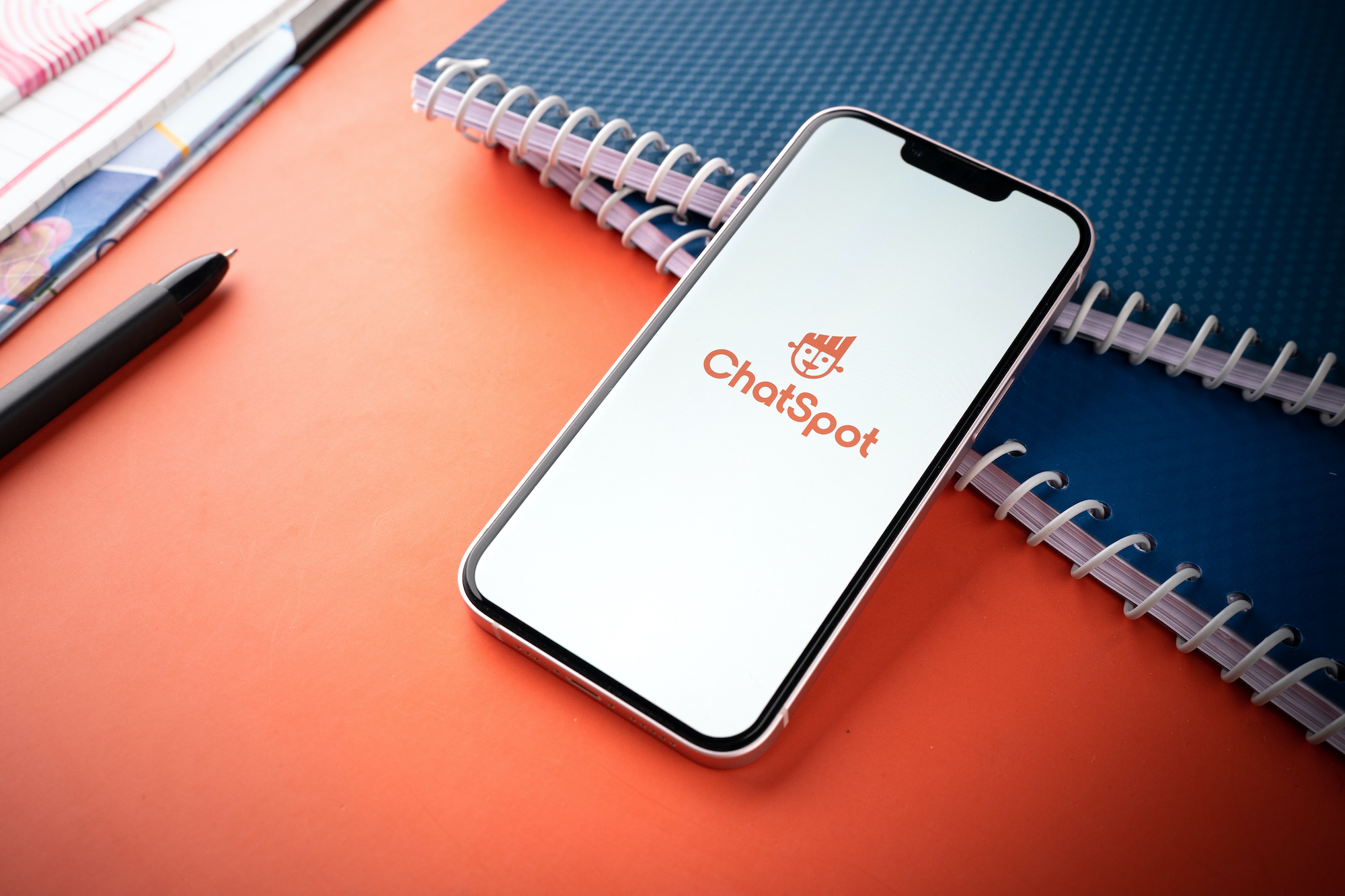AI has been a topic hot on everyone’s lips for quite some time now. Whilst it is commonly agreed that AI is set to dramatically impact the way SEO works, the community is hugely split as to whether this...
AI has been a topic hot on everyone’s lips for quite some time now. Whilst it is commonly agreed that AI is set to dramatically impact the way SEO works, the community is hugely split as to whether this change is positive or negative.
The truth is, as ever, not as drastic as many articles would have you believe. AI is another tool in an ever-increasing digital toolbelt open to businesses and creators, one which can be made to work for you rather than against. In this article, we’ll be looking specifically at generative AI and how it impacts your content and the wider SEO landscape.
What is Generative AI?
Generative AI is an artificial intelligence capable of analysing a huge volume of source data, understanding the content, identifying patterns and creating new unique media (such as text, imagery and videos) based on this understanding.
Well known examples, such as Bard and ChatGPT are Large Language Models (LLMs); incredibly complex AI which use billions of parameters to break text down into small chunks, understand their meaning, both isolated and in context, then predict what should come next in the sequence. Using this understanding, they are capable of replicating authentically human-like text and responses to questions or prompts.
What are the main uses of Generative AI?
Generative AI has become a huge part of our day-to-day lives, whether we know it or not. From assistants on our phone to the content we consume and even our search engines; AI helps streamline our day-to-day life and the tasks within.
Time-saving tools
This same understanding of language can be incredibly useful as a time saving tool for monotonous tasks such as analysing data, creating transcripts/ captions for videos or even translating content to another language.
Personalisation
With its ability to consume huge amounts of data rapidly and find patterns, generative AI is incredibly effective at suggesting products and media based on your personal preferences and viewing/ purchase history. The accuracy of this personalisation, and by extension the engagement, is often far more accurate than manual recommendations, due to the sheer volume of data that can be processed to create user-specific personalisation, rather than product or demographic based.
Text Generation
LLMs are used for text generation for everything from chatbots and virtual assistants to much of the content we digest across the web.Their understanding of not only the content but context of user input allows for them to reply in a way that sounds human an incredibly human-like manner.
Creative AI
For the creative space, AI created art (while controversial) is now commonplace across the web and helps people visualise their ideas in new ways, whilst AI created music analyses the structure of songs within each genre and replicates the patterns to create new songs of a similar style.
Generative AI in content creation:
It’s fair to say that generative AI is fundamentally changing the way content is being created, but there are several misconceptions around what it can and can’t do. Whilst it’s true that this advancement can hugely streamline the creation process, there is little danger to the jobs of human copywriters just yet.
Recent Google updates have been heavily focused on rewarding unique content. Google's helpful content update focuses on a user-first approach, rather than writing purely for SEO, and their patent for information gain shows they plan to take this even further in the coming years. First-hand knowledge and experience are being actively rewarded within search, neither of which can be provided by AI alone.
Rather than being designed as a means to replace writers, generative AI should be viewed as a tool to aid them. AI can help with every single step of content creation, from ideas and research to writing and refinement. For example:
Research
It can be easy to get stuck in a rut when researching topics to write content around. Smaller teams or solo freelancers in particular can risk running out of ideas and stagnating if writing on the same topic for an extended period of time.
AI can be used to sift through the content that already exists for any given topic and provide a series of prompts, keywords or suggestions that could potentially take hours if reading and digesting this content by hand. It can also analyse trends to see if there are any patterns which may help you create the right piece at the perfect time for your audience.
However, whilst AI can provide a thorough list of prompts and ideas to support writers, it can only do so from the data it has access to. This makes it far less useful for emerging fields or new innovations that aren’t yet being talked about, and renders it incapable of coming up with completely original ideas or concepts.
Writing
Using existing content as a base, generative AI can write about almost any topic in any style, following prompts from the user. The core issue with this is that whilst the content may look and feel unique, the data within will have been sourced from third parties rather than written from personal expertise. Not knowing where the source data comes from can have several potential risks, such as unintentional plagiarisation, bias and old or incorrect data.
Rather than being used to generate entire articles from scratch, AI should be used either to assist the writer by drafting outlines or structures that can be worked within, or by taking notes/ an early draft from the writer and turning this into a fully fleshed out article. By using this collaborative approach, the finished piece gets the best of both worlds: human knowledge and innovation with the time-saving and convenience of AI.
Proofing & Refinement:
Once your content has been written, AI can be used to review the language, spelling, grammar and complexity of the piece to suggest refinements. This can be an incredibly quick and effective way to get a second pair of eyes on your piece, with suggestions on how to make it more engaging for your target audience.
Refinement can also make SEO optimisation simpler for those who aren’t trained in it, providing basic suggestions on recommended keywords to include or drafting metadata such as page titles or meta descriptions to enhance its appearance in search.
You can even use it to fact-check your writing, or to check it against regulations and standards of the industry you’re writing for. Whilst neither of these are completely fool proof, as the AI can only be as accurate as the information it has access to, it can be an incredibly quick and easy way to make sure nothing has slipped through the gaps.
Accessibility and localisation:
Even once your content is fully completed, there are plenty of ways to make it more accessible for your audience. You can easily use generative AI to translate your piece to another language, simplify it for less advanced readers or localise it for different cultures (like changing all English spellings to American variations)
Generative AI in SERPs
As 15% of all searches have never been searched for before, it makes sense that Google is looking to use AI to offer far more relevant results to niche or unusual searches. Generative AI is being introduced to Search Engine Results Pages (SERPs) to help answer complex queries that take several factors into account simultaneously, where previously you may have needed several separate searches to achieve the same result.
As an example, a search could include the best holiday destination within a set area for parents with children of specific ages, who also have dogs. A search this complex would usually need to be broken down into several searches then manually sifted down due to the huge amounts of information to take into account. The understanding of context would also allow for direct follow-up questions. In the example above, you could “what time of year is most expensive” and the context from your previous search would carry over, without the need to retype it each time.
AI & the future of SEO
Search engines have long been driving SEO in one core direction: to provide the most relevant and useful results to the user for every search. A happy user will return and use the service again, leading to more clicks to ads and more revenue generated for the search engine as a result.
With this in mind it’s easy to see how purely AI generated content will fall foul of algorithms such as Google’s Helpful Content Update, which specifically rewards “first-hand expertise and a depth of knowledge”, something simply not possible for AI.
Rewarding unique and first-hand knowledge isn’t a short-term focus either, as this patent from 2020 for a concept called “information gain” shows. Using this model, fresh and unique content would see significant ranking boosts over those which contain information which overlaps with other sites, or that the user has seen before.
If this is the direction search engines like Google continue to take, this can be seen as a huge win for smaller businesses that simply don't have the time and resources to generate endless long-form content such as pillar pages, but do have considerable expertise in-house. Using AI as a tool, your writers can identify potential gaps and long-tail keywords to target, then you can leverage your in-house expertise to provide new and fresh insights, findings or applications.
Does this mean that AI generated content won’t ever rank though? The short answer is no. Whilst Google's guidelines used to include “written by humans” as a preference, this has since been removed, showing that content being written by AI will not be inherently penalised, as long as it contains unique human expertise within.
AI is continuing to work its way into every aspect of SEO, from automation such as email marketing, workflows, deals and surveys to aiding our research, copywriting and proofing.
For those who are worried about AI coming for their roles, there is a simple question: would your business trust AI to make key financial decisions on its behalf? The answer is almost certainly no, as we all recognise its limitations and chance for error, so why would we let it take over our content or SEO?
AI is a tool we should adopt as part of our day-to-day work; taking the effort out of the menial or repetitive tasks and letting us focus on the bigger picture. Like any tool, we need to make sure we’re using it correctly to get the most out of it. Used properly, AI is fantastic for processing and sorting huge quantities of data that we simply aren’t capable of, but is incapable of critical thinking, true creativity or drawing informed, unique conclusions from this data without human input.
The future of SEO is the balance between human and AI; each supporting one another's weakness for a far greater result than either could achieve alone.













